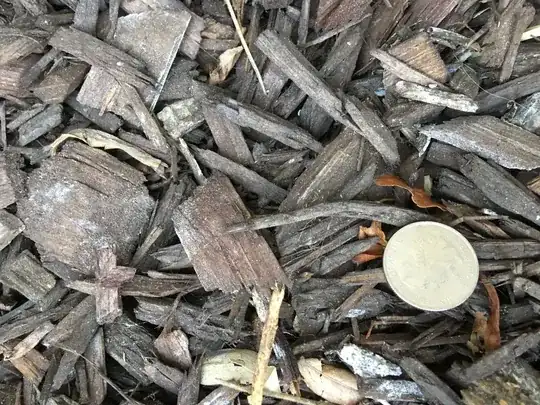Well technically they're wood chips, but also a mulch, although they look pretty awful - they're not even proper bark chips. I can only guess why they were all over the lawn, but I live in the UK - is it possible that people who live in hot, dry regions of the USA strew wood chips over their lawns when the weather is particularly hot? I can't imagine it would do the grass much good, but perhaps there is a reason for it - and maybe someone from your area (either on here or a neighbour) might tell you.On the other hand, the chips might just have been spilt over the lawn - it's certainly not usual for chippings to be in such a place.
In regard to mulch, mulch is just a term for a layer of something over the top of soil - it might be organic (composted manure, leafmould, bark chips, anything that rots down over time) or inorganic (pebbles, chippings, slate and the like). Even the layer of leaf litter in forests is a mulch, and a layer of shredded paper or cardboard spread over the soil would also be a mulch.
The advantage with a good organic mulch applied to beds and borders at least annually in spring is, it keeps moisture in and reduces 'baking' of the soil from hot sun in summer - it also improves the ability of rain to penetrate the soil instead of running off when there's a sudden downpour. As it breaks down, it improves the soil, raising the bio diversity within it, thereby improving fertility. Some mulches break down quicker than others - good garden compost or composted manures will be taken down into the soil much more quickly than lumpy bark chips, but the more organic material placed in or onto soil, the better the soil will be, and the better plants will grow. Finally, mulch is sometimes used as a weed suppressant - but that would need to be a layer a mininmum 2 inches thick, and preferably more.
If you do decide to mulch, always remember never to pile it up against the woody trunk of a tree or shrub. If you apply a thick layer of mulch as a weed suppressant, leave a clear inch or two at least all round the woody trunk or stem. And never use fresh wood chippings - they're best composted first.
